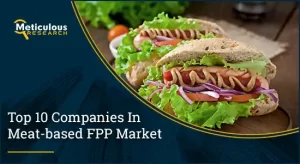The Nematicides Market was valued at $1.97 billion in 2023. This market is expected to reach $3.97 billion by 2031, from an estimated $2.13 billion in 2024, at a CAGR of 9.3% during the forecast period 2024-2031.
Organic farming is the practice of cultivating crops without relying on synthetic pesticides or chemical fertilizers. Instead, it uses natural alternatives like biological pesticides, including bionematicides, to boost crop yields. Biologicals are naturally occurring substances derived from animals, plants, and microorganisms such as bacteria, cyanobacteria, and microalgae. These agents help control agricultural pests and diseases by utilizing products like genes or metabolites from biocontrol agents to protect crops from damage. A major benefit of biologicals over traditional chemical pesticides is that they are eco-friendly and target specific pests, reducing unintended harm to other organisms. With growing consumer awareness of the risks associated with chemical residues in food, the demand for chemical-free, sustainable farming practices is rising, driving the adoption of biological solutions like bionematicides.
The global population, projected to reach 9.7 billion by 2050, will place increasing pressure on agriculture to meet the rising demand for food. This surge in food requirements is expected to drive the adoption of modern agricultural practices, including organic farming. Synthetic chemicals, while widely used to boost agricultural production, pose potential health risks through residue contamination in food, leading to a growing consumer preference for organic produce. Organic farming, which relies on biological crop protection methods, may help reduce the risk of various health conditions, including cancer, heart disease, stroke, allergies, and obesity.
Download Sample Report Here @ https://www.meticulousresearch.com/download-sample-report/cp_id=3687
Organizations around the world are actively promoting organic farming, raising awareness of the harmful effects of chemical use in agriculture, and encouraging the consumption of organic foods. Governments are also launching initiatives to support organic farming and the production of chemical-free foods. As a result, there has been a significant increase in the global consumption of organic products and the expansion of organic farming. According to FIBL-IFOAM 2023, by 2022, organic farming was being practiced in 191 countries, covering around 76 million hectares of land managed by 3.7 million organic farmers. Organic products must meet stringent standards, with organic labels certifying that no toxic pesticides, synthetic nitrogen fertilizers, antibiotics, synthetic hormones, or genetic engineering have been used in their production.
The global organic food market has seen tremendous growth, reaching USD 137.1 billion in 2020, up from USD 17.9 billion in 2000. This increase is fueled by rising consumer awareness about health and environmental issues. Bionematicides play a crucial role in organic farming, offering a safer alternative to synthetic pesticides. They are less toxic, reduce the risk of resistance development in pests, and can enhance plant growth by promoting beneficial soil microbes. Consequently, the use of bionematicides in organic farming is anticipated to grow significantly in the coming years.
In summary, the growing demand for organic food is expected to drive the expansion of the nematicides market. According to Meticulous Research®, the global nematicides market is projected to reach $3.97 billion by 2031, growing at a CAGR of 9.3% from 2024 to 2031. In terms of volume, the market is expected to reach 201,413.3 tons by 2031, with a CAGR of 8.8% during the forecast period.
Quick Buy: https://www.meticulousresearch.com/Checkout/75298008
Nematicides Market Research Summary
| Particulars | Details |
| Number of Pages | 400 |
| Format | |
| Forecast Period | 2024–2031 |
| Base Year | 2023 |
| CAGR (Value) | 9.3% |
| Market Size (Value) | USD 3.97 Billion by 2031 |
| Market Size (Volume) | 201,413.3 Tons by 2031 |
| Countries Covered | North America (U.S., Canada), Asia-Pacific (China, India, Japan, Australia, Thailand, Vietnam, Indonesia, Malaysia, and Rest of Asia-Pacific), Europe (France, Germany, Italy, Spain, U.K., and Rest of Europe), Latin America (Brazil, Mexico, Argentina, Chile, and Rest of Latin America), and the Middle East & Africa |
| Key Companies | American Vanguard Corporation (U.S.), BASF SE (Germany), Bayer AG (Germany), Biobest Group NV (Belgium), Corteva, Inc. (U.S.), FMC Corporation (U.S.), Gowan Company, LLC. (U.S.), Nufarm Limited (Australia), Pro Farm Group Inc. (U.S.), Syngenta AG (Switzerland), Sumitomo Chemical Co., Ltd. (Japan), and UPL Limited (India). |
Contact:
Meticulous Market Research Pvt. Ltd.
1267 Willis St, Ste 200 Redding,
California, 96001, U.S.
USA: +1-646-781-8004
Europe : +44-203-868-8738
APAC: +91 744-7780008
Email- sales@meticulousresearch.com
Visit Our Website: https://www.meticulousresearch.com/
Connect with us on LinkedIn- https://www.linkedin.com/company/meticulous-research





